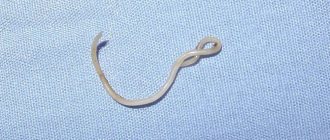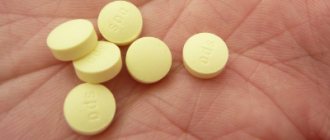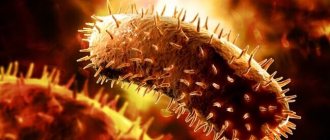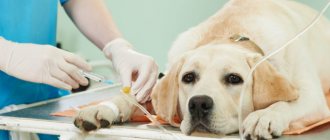Pets must be vaccinated. This will protect their health from deadly viruses. It is very important to properly prepare your pet for vaccination and also properly care for it after vaccination. You must remember that you should not wash your dog immediately after the injection. Owners try to find out in advance how many days after vaccination the puppy can be bathed.
Dogs need bathing only in extreme cases.
What is quarantine after vaccination?
After vaccination, you must undergo a short quarantine lasting 10–14 days. During this time, several conditions must be strictly observed:
- Walks should become shorter.
- There is especially little need to walk in frosty and rainy weather. The slightest hypothermia will harm the dog.
- Do not expose your dog to increased stress or stress. She shouldn't be overtired.
- The pet should not have contact with other animals.
The question often arises: is it possible to wash a dog after vaccination? This can be done no earlier than 7 days after vaccination.
Attention! Swimming is dangerous because the animal may freeze, and hypothermia during this period can lead to serious illness.
Post-vaccination quarantine allows the dog’s body to develop immunity. For an adult animal, 10–14 days are enough: during this time the body will become noticeably stronger.
But puppies need to be vaccinated 2 times with a break of 3 weeks. After each vaccination, you must undergo a strict quarantine of 14 days. Before vaccination, the puppy is treated against fleas, worms and ticks. At the age of 6 weeks, the puppy is vaccinated against parvovirus enteritis, but this vaccination is not mandatory. It is carried out in shelters and nurseries where many animals are kept. Modern vaccines are used for this.
At 7–8 weeks a complex vaccine is given, which includes protection against a number of diseases:
- distemper (Carre's disease, canine plague);
- parvovirus enteritis;
- laryngotracheitis (adenoviruses);
- infectious hepatitis (adenoviruses);
- leptospirosis;
- parainfluenza
At 12 weeks, a second vaccination is given (or a third if the puppy was vaccinated at 6 weeks). The complex vaccine is repeated, but includes a rabies vaccination.
Puppies need to be vaccinated several times
The puppy is given its last vaccination at 3.5 months, and then quarantined for two weeks. After this, the baby can go outside for a walk and even play with other dogs.
Attention! If the puppy has not developed immunity, he is given additional vaccinations at 4 months. The complex vaccine with the rabies component is repeated.
Quarantine for puppies:
- You only need to walk the baby in your arms. You can't let him run on the ground.
- The house needs to be wet cleaned regularly. It is advisable to wash the floor with a solution of potassium permanganate.
- Outerwear and outdoor shoes should be hidden from the puppy.
- If possible, the first vaccination for a puppy is best done at home by calling a veterinarian to your home. In the veterinary clinic you need to keep the baby away from other animals.
It is important to know how long after vaccination you can wash your puppy. You can bathe the kitten after 7–10 days and only as a last resort (if it gets very dirty).
Adult dogs are vaccinated with Nobivak, Eurikan or Multikan vaccines. The vaccination schedule is the same for all breeds: dogs of all sizes receive the same dose of vaccine.
Important! The owner can bring the infection from the street, so wet cleaning in the apartment is necessary.
The best vaccines are Nobivak, Eurikan or Multikan.
How to prevent your dog from feeling unwell after vaccination
To avoid side effects, you should tell your doctor before vaccination everything about:
- what diseases does the dog have?
- what vaccines were made and when this happened.
It is also important to tell how the animal reacted to the vaccine before. Any detail may be important to the veterinarian, even if it seems to you that the reaction was minor.
When planning a vaccination, you must adhere to the following rules:
- Vaccinate only healthy dogs. Vaccination given to an unhealthy animal can aggravate the disease and cause irreparable harm. In addition, immunity may not develop after vaccination of a sick animal.
- The vaccine is also not recommended for pets with autoimmune diseases, cancer, post-surgery, or any health-threatening condition.
- Do not get a rabies vaccine within 3 weeks of any other vaccination.
- Give the injection at the safest time - in the morning, at the beginning of the week. You need about 48 hours to make sure there are no side effects. And if they appear, it is necessary that the dog can be given immediate help.
- If you have just returned from a trip, plan to get vaccinated no earlier than 5 weeks after that. The animal could have contracted some kind of infection that has not yet manifested itself. And if you vaccinate it, it could kill him.
- Do not vaccinate your pet yourself. The veterinarian may see signs of illness that the owners did not see and postpone the procedure until the pet recovers, so as not to put it at risk. And at the same time he will prescribe treatment.
Did you know? Ants use social immunization. If one ant in a colony is infected with a fungus, the rest will lick the infected insect to spread the infection throughout the colony. This makes the entire colony immune to the fungus.
Immediately before vaccination, you need to prepare your pet. For example, clean wool guarantees that dirt will not get into the injection site and will not irritate the skin. 14 days before the visit to the veterinarian, anthelmintic must be given. Meals in the days preceding vaccination should be nutritious. It will be helpful to supplement with vitamin D to help cope with future stress.
It is also important to follow your vaccination schedule. It is not the same for all animals. But it is divided into 2 parts: mandatory and recommended vaccines. Mandatory must protect the pet from the plague virus, parainfluenza, adenovirus, hepatitis, leptospirosis, bordetellosis, Lyme disease, rabies and some other diseases. And the second group is worth doing if your pet often faces the possibility of infection. For example, vaccination against tick-borne encephalitis.
There are no special rules for choosing vaccines. The composition of the drug for any infectious disease includes a weakened excitability of this disease. Therefore, the difference between drugs from different companies is not great. If they affect your pet differently, then this is an individual reaction of the body and it does not apply to another dog.
If your dog doesn’t like going to the doctor, then you need to take his favorite toy with him or offer him a tasty treat. Provide her with an additional portion of communication and joint games
Features of caring for domestic and apartment dogs
A dog living in an apartment or private house goes for a walk outside, where he can pick up an infection. For 21 days after the primary immunization, the pet must be isolated from other dogs. Exactly the same quarantine is maintained for 14 days after the secondary vaccination.
If you have to vaccinate several puppies at once, they can be kept together. If you need to vaccinate one dog, but another, already vaccinated dog lives in the apartment, they need to be kept in different rooms.
A dog that has just received a rabies vaccine should be kept away from cats because they can become infected with rabies.
Attention! All other infections, except rabies, are different in cats and dogs. Dogs do not get infected with feline viruses, and cats do not get canine viruses.
Many owners bathe their dogs after a walk. It is advisable to abandon this procedure for a while. You need to remember when you can wash your puppy after vaccination and wait until that day.
You can swim 10-14 days after vaccination
Vaccination of a dog and its well-being after vaccination
Purebred dogs are susceptible to many diseases, which can be avoided by timely vaccination.
The process is not complicated, but there are pitfalls. Vaccination of a dog is carried out with the aim of developing or maintaining the animal’s body resistance to the effects of pathogens of various diseases. It’s quite simple to do it, you just need to decide on its purpose, choose a good clinic (and sometimes a veterinarian), set a day and get vaccinated.
This is roughly how it all happens, but from the moment of vaccination, the dog needs special attention. It is necessary to create conditions in which she will be least vulnerable to possible complications. Negative consequences may not occur, since the animals’ bodies react differently to the administration of the vaccine. Quite often it is possible to prevent the occurrence of complications, but you need to be prepared for their occurrence.
Photo of a dog at a veterinarian's appointment
Complications in the first days after vaccination
Pets are very vulnerable after vaccination. You need to monitor their well-being very carefully and contact a veterinarian at the first symptoms of illness in your dog. In the first days after vaccination, complications may appear.
There are two types of complications after vaccination:
- General: drowsiness, decreased activity, lethargy, refusal to eat.
- Local - redness, swelling, inflammation at the injection site.
The most common complication is an increase in temperature to 40 °C in the first few days after vaccination. If this condition does not go away, you will need the help of a veterinarian.
A small lump often forms at the injection site. This is a completely normal phenomenon, about which there is no need to worry: the lump will go away in a few days. If it does not disappear, you need to go to the veterinarian.
Attention! The most dangerous complication is the dog's allergy to any components of the vaccine.
In severe cases, the pet may develop anaphylactic shock or coma. Allergic reactions such as drooling, shortness of breath, and bluish discoloration of the mucous membranes often occur. If an allergy occurs, you should go to the veterinary clinic.
After vaccination, you should avoid hypothermia and stress.
When to contact a veterinarian
Not all symptoms are harmless, so sometimes you simply cannot do without a veterinarian:
- Progressive deterioration of the condition. Prolonged weakness, repeated refusal of food offered, repeated cases of vomiting and diarrhea, temperature above 39.5° and the appearance of convulsions require mandatory diagnosis. Do not delay contacting the veterinary clinic if alarming symptoms persist for more than 3 days.
- Abscess formation. In this case, the lump grows and secretes pus.
- Anaphylaxis. An allergic reaction to the drug occurs rarely (no more than 1 case in 1000), but is accompanied by dangerous symptoms: excessive salivation; swelling; change in the color of mucous membranes (pallor, cyanosis); difficulty breathing.
In case of anaphylactic shock, the puppy should be hospitalized immediately
For allergy symptoms, give your dog an antihistamine (suprastin).
That in case of anaphylactic shock, immediate administration of adrenaline is required, so delay in calling a doctor is not acceptable.
In conclusion, I note that complications after vaccination can be caused by:
- Owner's negligence. Failure to comply with recommendations during quarantine can result in serious consequences.
- Poor quality vaccine. An expired product can cost your puppy his life. Do not go to questionable clinics and always ask your veterinarian to show the production date of the vaccine being administered.
- By administering a vaccine to an infected animal. Vaccinating sick animals is not only useless, but also dangerous due to complications of the disease.
- Intolerance to the components included in the vaccine.
If your pet feels unwell, do not be afraid to seek veterinary help. A child’s body is more vulnerable, so to be on the safe side, consult your symptoms by phone.
Many people have found themselves in situations where contact with a wild animal or small rodent resulted in a bite. And the unpleasant incident was not always limited to pain at the site of the bite and unpleasant memories. Many wild or stray animals have rabies, which means that a deadly virus that can be fatal enters the human body with saliva. Only an anti-rabies vaccine (rabies vaccination) can save a life in such a situation.
Modern medicine has 2 types of vaccines in its arsenal. The first is used to prevent bites from rabid animals, and is prescribed to zoo workers, veterinarians, and people who want to insure themselves against possible infection. The second vaccine is called rabies serum and is administered in emergency cases after an animal has bitten a person. But even understanding the need for such vaccinations, many people wonder about the side effects of vaccination and try to find out from the doctor what the state of the body is after the rabies vaccination. Let's look at this issue in detail.
Quarantine period and its duration
Quarantine lasts 10–20 days. Its duration depends on the course and type of vaccine. In the first 4–7 days after vaccination, moisture should not be allowed to enter the injection site. Swimming is strictly prohibited, because any hypothermia will adversely affect a weakened immune system.
If a dog is vaccinated against rabies, the pet should not be bathed for 14 days after vaccination.
How to care for your dog during quarantine:
- avoid washing;
- keep warm, quiet and calm;
- fully feed.
Vaccination instructions
The modern method of rabies vaccination is simpler than it was ten years ago. There are several vaccination schedules that are used depending on the situation.
Rabies vaccine injections are not given in the stomach. The graft is placed in the gluteal muscle or shoulder muscle.
Vaccination in case of attack
If a person is attacked by an animal infected with rabies, the following vaccination schedule is used:
- the vaccination is given immediately after the victim consults a doctor;
- another vaccination is given on the 3rd day;
- at the end of the first week after the bite of a sick animal;
- on the 14th day;
- vaccination on the 30th day;
- the latter is done on the 90th day after the bite.
This rabies vaccination regimen ensures the formation of the most durable immunity.
Additional vaccination after an attack
A patient who received a rabies vaccination no more than 1 year ago, in the event of an attack by a sick animal, undergoes additional vaccination, carried out according to a slightly different schedule:
- one vaccination on the day the animal attacked;
- vaccination on the 3rd day;
- and another one after 7 days.
Preventive vaccination
Persons at risk (veterinarians, foresters) are recommended to undergo preventive vaccination, which is carried out according to a special schedule, regardless of whether there was an attack by a sick animal or not. The vaccination schedule is as follows:
- vaccination on the day of treatment;
- another one in 7 days;
- vaccination on the 30th day;
- a year later the first revaccination is carried out;
- and then one shot of the vaccine every three years.
Vaccination has the maximum effect on the rabies virus if the victim has not yet developed the first symptoms of the disease. This period (incubation) lasts from 10 to 90 days. Otherwise, the likelihood of death is very high.
When can you bathe your dog after vaccination?
When trying to find out whether it is possible to bathe a dog after vaccination, you must remember that washing is allowed only 2 weeks after the injection. In the first days, the vaccination site should not even be wetted. You need to understand why this is necessary: because of bathing, the dog can catch a cold and get sick. This is dangerous if you have a weakened immune system.
After bathing the pet, dry it thoroughly
Recommendations for caring for your puppy after injection
To prevent your dog from getting sick after vaccination, you must follow certain rules:
- Complete quarantine without street walks to prevent any infection. Even a common cold viral infection can have unpredictable consequences.
- In fact, you yourself can become the cause of a third-party infection. For this reason, do not forget about hygiene, clean your house or apartment; wet cleaning, even, if possible, with bleach, is mandatory.
- Do not forget to wash your hands not only after contact with your pet, but also before.
- Try to provide your four-legged friend with complete peace and absence of any forms of stress, in particular, refuse to receive guests.
- You should not experiment with new ingredients in your diet for the first couple of days.
- Completely avoid any water procedures for a week after vaccination.
Bathing procedure step by step
After completing the quarantine, you are allowed to wash the dog, but this must be done very carefully.
Step-by-step instruction:
- Place a rubber mat or towel on the bottom of the tub to prevent your paws from slipping. Small dogs can be bathed in a sink or basin.
- The pet's ears should be filled with cotton swabs to prevent water from getting into them.
- Wash with warm water (not hot or cold).
- First, the dog is carefully watered with shower water. The pet should be watered with water from the shower, not from the tap.
- In a separate container, dissolve the shampoo in water in a ratio of 1:5.
- Lather your pet. Foam should not get into your eyes and ears.
- Carefully and thoroughly rinse off the foam. Rinse every fold of the body.
- Remove the dog from the bath and dry with a soft terry towel.
- Place your pet in a warm place where there are no drafts.
You can walk with your dog only when the fur is completely dry. Drying with a hairdryer is not recommended.
After bathing, the puppy needs to be placed in a warm place.
Caring for the animal after vaccination
During quarantine, the dog’s usual rhythm of life changes. They not only try not to walk her, but also limit her contact with other pets in order to eliminate the risk of the slightest infection.
The veterinarian gives recommendations on a balanced diet to support a weakened body.
There is also a limitation on the number of water procedures. If the dog is an adult, then 7-10 days after vaccination it can be bathed. But the puppy will have to endure until the end of quarantine. But if the need arises, then adhere to the following rules:
use only warm water and shampoo that does not cause allergies;- when swimming and for some time after it, all windows and doors in the house should be closed to avoid drafts;
- you need to use 2 towels - one to dry the fur well, and the other to wrap the pet until completely dry.
A vaccinated dog should be protected from hypothermia. It is also important to monitor the emotional state - you should not expose the animal to stress.
Bathing products
There are many pet shampoos available in pet stores. It is necessary to bathe your pet only with a special pet shampoo for dogs. Human cannot be used.
The best pet shampoos:
- Keratolux Virbac.
- Tar.
- Mr Bruno.
- Doctor ZOO.
- Mild Puppy.
- Royal Groom.
- 8 in 1 Tea Tree Oil Shampoo.
- Beekeeper.
- Espree Bright White Shampoo.
- Pet Head Dry Clean.
Zoo shampoos not only wash away dirt from the fur, but also destroy ticks, fleas, lice and other skin parasites.
When to sound the alarm and what to do if complications arise
As already noted, after vaccination, owners must monitor the condition of their pet. After administration of the rabies vaccine, some symptoms that develop in dogs go away on their own on about the second or third day. The dog's condition should return to normal within a week!
Advice! After immunization, do not take your pet home immediately. As a rule, an uncharacteristic reaction develops in the first 10-40 minutes after administration of the rabies vaccine. Even if the dog tolerated the vaccine well, consult your doctor about how to care for your pet.
If after vaccination your dog has a slightly elevated temperature, occasional vomiting, diarrhea, refusal to feed, increased thirst, swelling at the injection site, or lameness, do not worry. Provide the dog with peace, protect it from stress, surround the pet with attention, slaughter.
Watching the dog
It is necessary to monitor the puppy after vaccination.
It is necessary to carefully monitor the dog’s condition. We need to monitor whether she has drooling, weakness, fever, vomiting, diarrhea, etc.
You need to constantly monitor the place where the injection was given to see if there is any redness, swelling, itching, etc. It is important to regularly measure the temperature. If the dog feels unwell, you need to urgently take it to the veterinary clinic.
Dog owners know well how to care for a pet after vaccination: after how many days you can wash your dog, how long you need to walk it, what you need to pay attention to. Sometimes after vaccination the dog is microchipped.
Vaccination procedure
Vaccinations for dogs begin 2 months after birth. During this period, a vaccine against major diseases is used. In the second round, at 12 weeks, the puppy is also vaccinated against rabies. Then revaccinations are carried out every year to strengthen the immune system.
The animal is prepared for the procedure: internal parasites and fleas are removed. Since the vaccine contains live strains, the pet must be completely healthy at the time of vaccination, otherwise the body will not be able to fight the virus.
Deworming of an animal
Treatment against parasites begins 10 days before vaccination. To eliminate worms, you can use Drontal, Kanikvantel plus, Milbemax. The products are used strictly according to the attached instructions.
If after the course the parasites have not disappeared, repeated cleaning is required. It is advisable to choose a different drug to avoid addiction.
Introduction of a complex vaccine
Any vaccination is stressful for the animal. To reduce the risk of injury to your dog, it is recommended to use polyvalent vaccines. They allow an animal to develop immunity from several diseases in one procedure.
It is recommended to use such drugs if you are planning to travel abroad with your dog.
The European Travel Union is guided by a list that limits the list of acceptable vaccines. In this case, the best option is the polyvalent drugs Duramun, Nobivak, Eurikan.
Administration of anti-rabies drug
The veterinarian can also give an injection with a monovalent drug, following the vaccination schedule. If several consecutive vaccinations are meant, then the doctor uses the same drug at each session.
A standard graph looks like this:
at 3 months;- at 1 year or 15 months;
- annually.
Unscheduled vaccinations are also carried out if a rabies quarantine has been declared in the area where the dog lives. Pets are also vaccinated if they are attacked by other animals.
Preparing your dog for rabies vaccination
Experts recommend the first vaccination against rabies for puppies before the start of the change of baby teeth, from 2.5 to 3 months, with repeated vaccination after 2-3 weeks. If this procedure is carried out after three months of age, then revaccination will be required only after a year.
Important! Experienced dog breeders have noticed that vaccinations carried out during the change of baby teeth negatively affect the color of the enamel.
If the owners plan to take part in exhibitions in the future, then this aspect should be paid attention to and wait until the age of 3 months to six months. But if the dogs are in an unfavorable area, and there is a threat of real infection, then it is not worth taking risks and delaying the introduction of the vaccine.
Preparing dogs for vaccination includes several points.
- 7-10 days before vaccination, it is necessary to deworm the pet, taking into account its age and weight.
- The day before visiting the clinic, you should take the temperature and carefully look at the animal’s behavior. Any deviations, including lethargy, excessive nervousness or loss of appetite, should be a reason to postpone the vaccination date.
- A week before visiting the clinic, you should not change your dog’s usual diet, travel, expose your pet to stress factors, or change your daily routine.
- If the vaccination is scheduled for the first half of the day, then the animal should not be fed, but at the same time be provided with a sufficient amount of clean water. Vaccination in the afternoon provides light feeding in the morning and unhindered access to water.
Important! Females in heat, exhausted, weakened and sick animals should not be vaccinated against rabies.
What causes complications?
In most cases, dogs tolerate vaccinations quite adequately and normally. For their immune system in particular, and the body as a whole, this is not the most serious stress. However, complications do occur. Their reasons most often are as follows:
- inattention or ignorance of the owners (there is a quarantine regime that must be observed; violations are fraught with serious trouble);
- poor-quality composition of the injection mixture (in particular, expired vaccine, ask your veterinarian about this before the injection, use the services of proven and reliable clinics);
- introducing the composition to an already sick animal (this happens when the veterinarian has not conducted a preliminary examination, or the vaccination is generally done by a person far from veterinary medicine);
- unfortunately, it is rare, but there are cases of individual intolerance to individual components that make up the vaccine.
How to choose the right vaccine
Vaccinations are mainly differentiated by country of origin. People believe that foreign-made vaccinations are better, while Russian ones are worse and more dangerous. In fact, there is no fundamental difference between them, except perhaps in price.
There are also mono-vaccines - against one infection, and multi-vaccines - against a whole set of diseases. Many people think that the multi-vaccine is more dangerous and creates extreme stress. However, in reality, any vaccination is stressful, and the fewer of them there are in the puppy’s life, the better. Moreover, some multi-vaccines contain up to 18 different pathogens. Is it worth torturing an animal with 18 different injections?










